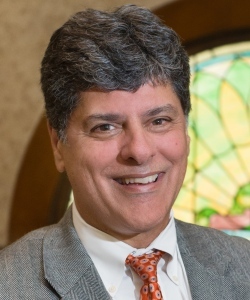Over the years, I’ve experienced a couple of instances where a non-family member brings a client to me for estate planning who was estranged from his family. The client wants to leave a major part of his or her estate to the non-family member. Let’s consider a hypothetical example.
An elderly man is brought to an attorney’s office by the man’s financial advisor. After meeting with both the elder and his advisor, the attorney determines that this man has a son who lives in another part of the country who is rarely involved in the elder’s life. For his part, the financial advisor checks in on him, helps him to pay his bills, takes him to his doctor’s appointments, takes him shopping, helps him to take care of his home and does all the things that a caregiver would normally do. The elder – acknowledging what the financial advisor has done for him – wants the attorney to create an estate plan where he leaves everything to his advisor.
The first thing to keep in mind is that from an ethical standpoint, the attorney is required to seek the lawful objectives of his client once he has been retained. At the outset, therefore, the attorney must arrange to meet with the elder alone at a place where the elder can speak freely without the financial advisor being present. The attorney must advise his client that this formality is a necessary part of the engagement because he has to make certain that the elder’s son cannot thwart the elder’s decision to leave everything to the financial advisor.
Further still, the attorney should consider recommending under these unique circumstances that a psychiatrist examine the client and submit a written opinion as to the elder’s capacity and willingness to leave his estate to his financial advisor. While this step may seem like an extraordinary thing to do, it provides an objective, professional opinion to support the client’s unusual wishes.
Finally, the attorney should advise the client that he would like to learn more about the relationship between his client and the financial advisor so the attorney can better determine whether his client’s decision to leave everything to his financial advisor is based on undue influence. That means the attorney might have to garner information from other people who could potentially testify, not only to the estranged relationship between father and son but also the close relationship between the client and his financial advisor. Last, because the financial advisor has a fiduciary relationship with the elder, the attorney should do a search to determine whether the financial advisor has any history of any disciplinary or ethical violations and any lawsuits or regulatory complaints brought against the advisor concerning a breach of his fiduciary duties to a past client.
Ultimately, if the elder has the capacity to make estate planning decisions and there is no evidence of exploitation, an attorney can help his client leave their estate to someone outside their family. The elder and his or her attorney must proceed with caution, however, to show that the elder had the requisite capacity to understand who were the natural objects of his bounty, the property that he or she holds and the consequences of naming a professional advisor as the beneficiary of the estate. Further, the attorney has a duty to satisfy himself that facts supporting a claim of exploitation do not exist. If you have the unique situation described above, please don’t hesitate to call the estate planning attorneys at Cipparone & Zaccaro. We’d be happy to discuss your scenario to determine what steps are needed to accomplish your unique estate planning goals.

